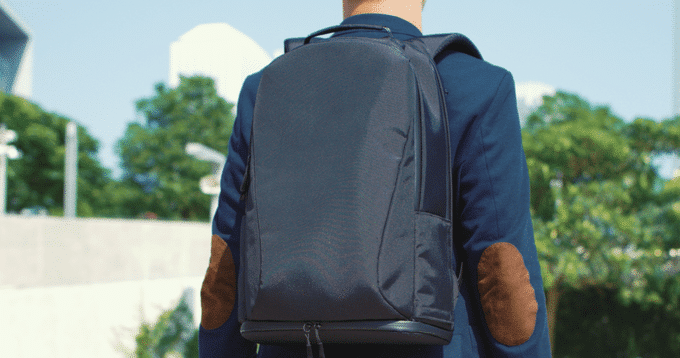Health and Wellbeing
Top Tips: Reduce The Burden of Heavy Bags

From our school days to working life and family adventures, we all carry heavy bags on a regular basis. This places a huge burden on our bodies, affecting our posture and causing pain in our spines, shoulders, knees and more.
We’ve got five top tips on how to minimise the impact of carrying heavy bags, which you can put them into practice right away. Time to turn your daily commute into a walk in the park…
-
Lighten Up!
It might sound obvious, but first things first… make sure you are only carrying as much as you really need. Keep some items at work, rather than carrying them back and forth each day resulting in unnecessary strain to your body. Lacking safe storage at work? Ask your office manager if they’d consider installing lockers, you may find your colleagues would appreciate this too.
-
Knowledge Is Power!
The more you understand your body, the more confidence you can have in making decisions to benefit it. For example, did you know that research indicates that carrying a bag weighing 10-15% of your body weight is the sweet spot when it comes to avoiding poor posture and joints being overloaded.
-
Super Straps!
Wide straps help to spread the load of a rucksack more evenly across your shoulders, distributing weight to relieve some stress on your spine. In comparison, thin straps cut into your muscles, restricting blood flow and movement so avoid these. Don’t be tempted to use one strap of your rucksack only – there are two for a reason!
-
Keep It Close!
In addition to its weight and strap design, the effect of a bag on your body is also dependent on its placement while being worn. Keeping your backpack close to your body and wearing it fairly high up on your back will minimise swing and decrease the level of stress placed on your spine.
-
Ask An Expert!
Have a chat with your physio for personalised tips to avoid and minimise injury. You can ask for advice on posture correction, tension-relieving stretches and strengthening workouts. A trained physio will also help you to resolve existing physical imbalances that could be contributing to aches and pains.